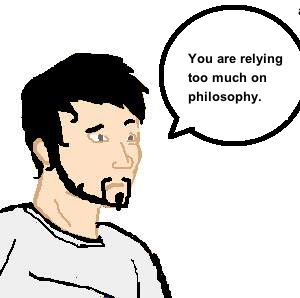 Doctor James White is one of the most outspoken living biblical scholars. His polemics against the heresies and justification of nefarious behavior that have arisen in the church and his apologetics to various religions have proven to be a worthy and helpful resource. He has engaged in public debates with Jehovah’s Witnesses, Mormons, Roman Catholics, and composed books that engage with contemporary issues. I personally possess and have read five of his books. It is easy to understand how he has convoked the respect of Christians everywhere, especially those among reformed circles who champion has as the primary defender of Calvinism. In his defense of Calvinist theology, he engages with Molinism. Despite that he has mounted criticism of it, James White does not understand Molinism.
Doctor James White is one of the most outspoken living biblical scholars. His polemics against the heresies and justification of nefarious behavior that have arisen in the church and his apologetics to various religions have proven to be a worthy and helpful resource. He has engaged in public debates with Jehovah’s Witnesses, Mormons, Roman Catholics, and composed books that engage with contemporary issues. I personally possess and have read five of his books. It is easy to understand how he has convoked the respect of Christians everywhere, especially those among reformed circles who champion has as the primary defender of Calvinism. In his defense of Calvinist theology, he engages with Molinism. Despite that he has mounted criticism of it, James White does not understand Molinism.
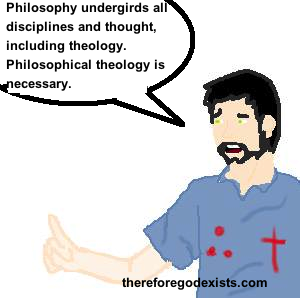 But how is this? How can a man of high intellectual repute render unworthy criticisms? How can we even say that? Surely everything that he says should come forth from sophistication. Perhaps to consider why this is, think of a man such as Professor Richard Dawkins. Professor Dawkins may be quite brilliant in his field (zoology), but when he steps outside of that field, he is merely a laymen. Similarly, Doctor White is a Greek scholar and an exegete. But Molinism is a matter of philosophical theology, which is not his area of expertise. Doctor White has smuggled in his criticisms of Molinism under the guise of his credentials and authority in his area of expertise. Alas, when rendering these criticisms, he is merely a laymen. For Doctor White to criticize a Molinist scholar, such as Doctor William Lane Craig, it is to be thought of something like a student debating a professor. James White does not understand Molinism, and his criticisms that he rendered in his YouTube Video, Explanation and Refutation of Middle Knowledge reflect that.
But how is this? How can a man of high intellectual repute render unworthy criticisms? How can we even say that? Surely everything that he says should come forth from sophistication. Perhaps to consider why this is, think of a man such as Professor Richard Dawkins. Professor Dawkins may be quite brilliant in his field (zoology), but when he steps outside of that field, he is merely a laymen. Similarly, Doctor White is a Greek scholar and an exegete. But Molinism is a matter of philosophical theology, which is not his area of expertise. Doctor White has smuggled in his criticisms of Molinism under the guise of his credentials and authority in his area of expertise. Alas, when rendering these criticisms, he is merely a laymen. For Doctor White to criticize a Molinist scholar, such as Doctor William Lane Craig, it is to be thought of something like a student debating a professor. James White does not understand Molinism, and his criticisms that he rendered in his YouTube Video, Explanation and Refutation of Middle Knowledge reflect that.
 The value of philosophical theology. Imagine you were to overhear a conversation between a religious person and an atheist. When challenged to explain why he is an atheist, he cites all of these scientific resources and attempts to relay scientific data to the religious person. The religious person becomes frustrated and overwhelmed at the idea of becoming scientifically oriented just to refute what this individual is saying. Rather than seriously engaging in the field of study, this individual just shrugs off the field of science and argues that it is not a worthy endeavor. This is precisely what Doctor White has done. For a number of times, he has complained that Molinism is too heavily reliant upon philosophy.
The value of philosophical theology. Imagine you were to overhear a conversation between a religious person and an atheist. When challenged to explain why he is an atheist, he cites all of these scientific resources and attempts to relay scientific data to the religious person. The religious person becomes frustrated and overwhelmed at the idea of becoming scientifically oriented just to refute what this individual is saying. Rather than seriously engaging in the field of study, this individual just shrugs off the field of science and argues that it is not a worthy endeavor. This is precisely what Doctor White has done. For a number of times, he has complained that Molinism is too heavily reliant upon philosophy.
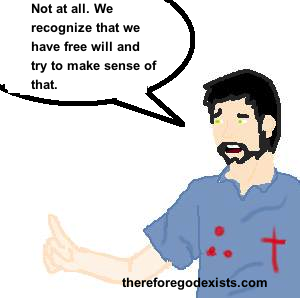 What Doctor White fails to realize is that every theological system is heavily reliant upon philosophy. I do not know what Doctor White thinks philosophy is. But I have heard many Calvinists describe it in a way that is very unsympathetic, something like, “It is just man’s unguided reason, disconnected from God.” But that is just not a robust or defensible definition of philosophy. Philosophy is etymologically the love of wisdom. As a practical explanation, philosophy is the study of knowledge. Doctor Alvin Plantinga described it as “thinking deep thoughts.” Everything that we do and think, and all of our disciplines are dependent upon philosophy. We could not practice biology without philosophy of biology. Similarly, we could not practice theology without philosophy of theology. The biblical worldview is contingent upon philosophy. Indeed, it is usually thought that even in the gospel of John, he relies on Grecian philosophy to attribute the title of Logos to Jesus.
What Doctor White fails to realize is that every theological system is heavily reliant upon philosophy. I do not know what Doctor White thinks philosophy is. But I have heard many Calvinists describe it in a way that is very unsympathetic, something like, “It is just man’s unguided reason, disconnected from God.” But that is just not a robust or defensible definition of philosophy. Philosophy is etymologically the love of wisdom. As a practical explanation, philosophy is the study of knowledge. Doctor Alvin Plantinga described it as “thinking deep thoughts.” Everything that we do and think, and all of our disciplines are dependent upon philosophy. We could not practice biology without philosophy of biology. Similarly, we could not practice theology without philosophy of theology. The biblical worldview is contingent upon philosophy. Indeed, it is usually thought that even in the gospel of John, he relies on Grecian philosophy to attribute the title of Logos to Jesus.
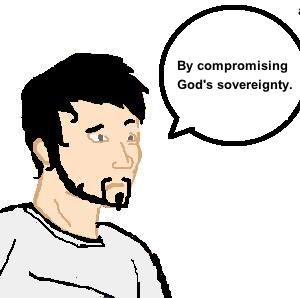 The practical difference between a biblical exegete and a philosophical theologian is that there are some questions that cannot be answered by Scripture. The Christian philosophical theologian is working within the confines of Christian theology. They have these various truths established by the biblical data and then begin to reflect upon them. A good example would be the question of God’s eternality. The Bible tells us that God is eternal, and has always existed. But the exegete of Scripture cannot tell you whether God is omnitemporal (existing at all times in an infinite past) or if he is timeless. That is a question that is answered by philosophical reflection. Similarly, the question of the relationship between sovereignty and freedom of the will is not a question for the exegete. It transcends the realm of exegesis. But, Doctor White will accuse the philosophical theologian of having an “inherent lack of trust in God’s word.” That is only because James White does not understand Molinism. He does not understand the task of the philosophical theologian.
The practical difference between a biblical exegete and a philosophical theologian is that there are some questions that cannot be answered by Scripture. The Christian philosophical theologian is working within the confines of Christian theology. They have these various truths established by the biblical data and then begin to reflect upon them. A good example would be the question of God’s eternality. The Bible tells us that God is eternal, and has always existed. But the exegete of Scripture cannot tell you whether God is omnitemporal (existing at all times in an infinite past) or if he is timeless. That is a question that is answered by philosophical reflection. Similarly, the question of the relationship between sovereignty and freedom of the will is not a question for the exegete. It transcends the realm of exegesis. But, Doctor White will accuse the philosophical theologian of having an “inherent lack of trust in God’s word.” That is only because James White does not understand Molinism. He does not understand the task of the philosophical theologian.
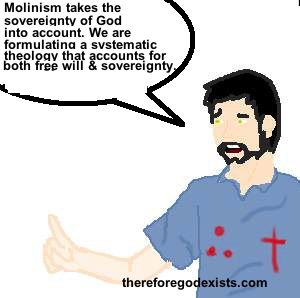 Does Molinism begin with the autonomous will of man? Doctor White argues that the only reason that anybody would become a Molinist is because they desperately want to preserve the autonomous will of man. They start with that presupposition that they must have freedom of the will, and contort everything else to fit into paradigm. If anybody else were to compose this characterization, I would assume that this individual does not care about what their opponents have to say. It sounds like he is just attributing derogatory labels to them just so their view would be easier to refute. But, out of the respect that I have for Doctor White and his work, I am prone to say that he does care what people have to say and he does want to characterize them honestly.
Does Molinism begin with the autonomous will of man? Doctor White argues that the only reason that anybody would become a Molinist is because they desperately want to preserve the autonomous will of man. They start with that presupposition that they must have freedom of the will, and contort everything else to fit into paradigm. If anybody else were to compose this characterization, I would assume that this individual does not care about what their opponents have to say. It sounds like he is just attributing derogatory labels to them just so their view would be easier to refute. But, out of the respect that I have for Doctor White and his work, I am prone to say that he does care what people have to say and he does want to characterize them honestly.
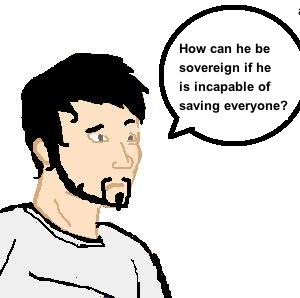 With that in mind, if you were to ask a Molinist if they are clinging desperately to freedom of the will, they would deny that. Instead, the Molinist would say that they recognize that freedom of the will exists (As I argued in my article Does God Micromanage Us, Or Do We Have Free Will?). Upon that recognition, they also recognize other features of the universe, such as the sovereignty of God. With these two features in mind, they will begin to take on the task of the philosophical theologian, by asking, “How do I integrate these two features of the universe into an acceptable model?” The Calvinist, like the Open-Theist, will reply, “You do not. You just drop one and keep the other.” That, however, is not intellectually satisfying and is not the result of serious critical analysis. Thus in accusing the Molinist of just trying to preserve freedom of the will, it becomes perspicuous that James White does not understand Molinism. The Molinist recognizes freedom of the will.
With that in mind, if you were to ask a Molinist if they are clinging desperately to freedom of the will, they would deny that. Instead, the Molinist would say that they recognize that freedom of the will exists (As I argued in my article Does God Micromanage Us, Or Do We Have Free Will?). Upon that recognition, they also recognize other features of the universe, such as the sovereignty of God. With these two features in mind, they will begin to take on the task of the philosophical theologian, by asking, “How do I integrate these two features of the universe into an acceptable model?” The Calvinist, like the Open-Theist, will reply, “You do not. You just drop one and keep the other.” That, however, is not intellectually satisfying and is not the result of serious critical analysis. Thus in accusing the Molinist of just trying to preserve freedom of the will, it becomes perspicuous that James White does not understand Molinism. The Molinist recognizes freedom of the will.
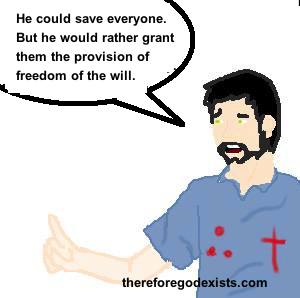 Does Molinism compromise God’s sovereignty? I can appreciate that Doctor White is very concerned with the sovereignty of God. For the Molinist holds the same concern. If he did not, then he would just become an open-theist. The Molinist is laboring to do philosophical theology within the perimeter of biblical truths. The Bible declares that God is sovereign, and we want to understand that and create a cohesive and systematized theology that accounts for truths, including both sovereignty and human freedom. The Molinist would say that God does not have to micromanage us to be sovereign. He does not have to dictate every single movement to have sovereignty. Indeed, the normal usage of the word ‘sovereignty’ would have to betray Doctor White’s insistence upon God’s micromanagement. For if a king is sovereign, he is not micromanaging. Thus for Doctor White to maintain that God is only sovereign if he is micromanaging, he would have to adopt a new and unheard-of definition of sovereignty.
Does Molinism compromise God’s sovereignty? I can appreciate that Doctor White is very concerned with the sovereignty of God. For the Molinist holds the same concern. If he did not, then he would just become an open-theist. The Molinist is laboring to do philosophical theology within the perimeter of biblical truths. The Bible declares that God is sovereign, and we want to understand that and create a cohesive and systematized theology that accounts for truths, including both sovereignty and human freedom. The Molinist would say that God does not have to micromanage us to be sovereign. He does not have to dictate every single movement to have sovereignty. Indeed, the normal usage of the word ‘sovereignty’ would have to betray Doctor White’s insistence upon God’s micromanagement. For if a king is sovereign, he is not micromanaging. Thus for Doctor White to maintain that God is only sovereign if he is micromanaging, he would have to adopt a new and unheard-of definition of sovereignty.
But Doctor White’s complaint is that on Molinism, God is incapable of creating a possible world of free creatures in which everybody is saved. Since human beings are free, then in every possible world, there are always people who reject him. People always reject God. Doctor White objects, “God’s will is limited to the free creatures allowing him to create a world.” What Doctor White has not understood is that these creatures are only free because God has allowed them to be free. But God could create a world of creatures who were not free if he so chose. He could do that. But, given the additive of human freedom, then God’s choices of possible worlds are limited. God does not have to give us freedom. He is under no requirement to do so. In complaining that God’s choices are limited, James White does not understand Molinism. God could choose anything he wanted. He could create a world in which everybody is saved. But the Molinist is saying that with the additive of human freedom, then God’s choices become limited because he wants to persist in allowing humans the luxury and virtue of freedom of the will.
Is predestination still personal? Molinists are often synergistic in their soteriology. This means that they believe that man and God cooperate to bring about salvation. God draws man into salvation, and man responds to him. But both elements are necessary. There may be times when man does not respond to God’s drawing. The Molinist picture of soteriology will often entail that God is actualizing the world in which the maximum number of free creatures are saved. In this way, predestination is thought to be impersonal. For God just wants the maximum number of people, rather than these specific people that he has called into salvation. Doctor White said that this sort of salvation is just a “numbers game.”
I am afraid that in making this objection, Doctor White seems to hold the assumption that all Molinists are synergists. While he was engaging with Doctor William Lane Craig’s work (who is a synergist), the title of his video was “Explanation and Refutation of Middle Knowledge.” If you are going to explain Molinism, you should explain the subtle nuances. There are Molinists who are also monergists (which means that God alone brings people to salvation). There are Molinists who would agree that in every possible world, everybody would deny salvation unless God regenerates them. But he did not bother to say this. He just assumed that Molinism was exclusively a form of synergism. This suggests to me that James White does not understand Molinism.
Who dealt God the cards? One of his primary counter-arguments to Molinist theology is the bizarre objection, “Where did God get these possible worlds? Who dealt him the cards?” Now a possible world is a world in which God takes all of the people put in all of the different circumstances. If one thing in that world were different, then it would be a different “possible world.” There is a possible world in which I read a book instead of writing this article. There is a possible world in which I did not exist. There is a possible world to represent every minute difference and free choice of man. God chooses to actualize the possible world which most sufficiently brings about his ultimate purpose.
So, as I say, Doctor White objects, “Where did God get all of these possible worlds? Who dealt him the cards?” He goes on to say that if somebody dealt God the cards, it follows that there is a second God, and he accuses the Molinist of polytheism! Well, I know why he is saying that. When referring to possible worlds, Doctor William Lane Craig pointed out that God is working with the cards that he has been dealt. But this is just a figure of speech. Doctor Craig does not think that a greater divine being dealt the possible worlds to God. Rather, Doctor Craig was suggesting that if there is human freedom, then the worlds in which God could bring about his will are limited. So if God wants to grant freedom to humans, his choices of worlds that allow for that freedom is limited. However, God could choose to absorb all human freedom and just make the world into a vain spectacle. As I have said, he has the power to do that. But he wants to grant freedom of the will. This sort of speculation on Doctor White’s part is really not productive.
How could God intimately know creatures who do not exist? Molinism entails that there is a possible world for every different contingency or event or thought. There is a possible world in which I did not write this article. There is a possible world in which my parents never met, and hence I never existed. There is a possible world in which different people coupled, hence producing individuals that do not exist in the actual world. These individuals that do not exist in the actual world are known so well by God that he knows what they would do in every circumstances. Doctor White objects to God possessing this sort of knowledge. It is just so abstract.
It may seem abstract and unknowable, but so does the future and the past. How could anybody know what will happen in the future? How could anybody have exhaustive knowledge of the present, the movement of quantum particles and the blowing of every grain of sand on every beach. That does seem unknowable. But perhaps if we expand our view of God and acknowledge that he is greater than we are, and that his ways are higher than ours, and that his thoughts are higher than our thoughts, the problem will begin to dissolve.
It might help if you imagine that these worlds are real. It’s possible for God to create a multiverse of infinite worlds where all of these possible people are real. There’s no trouble with God knowing all of the contingencies there because they are actual. Of course that would mean that the amount of universes is always growing to account for the different contingencies. So I do not think that an actual infinite number of things could exist. But that is just an illustration to help conceptualize how God knows these things.
Does Molinism retain freedom of the will? Since Doctor White thinks that Molinism is just a desperate attempt to retain freedom of the will, he also thinks that the suggestion that it does not succeed in that will leave the Molinist staggering. By putting people in a situation wherein you know that they will act in a certain way, are they still free? Doctor White says that they are not free because they are just sort of robotically reacting to the circumstances that God knew would occur. But he is making the assumption that foreknowledge negates freedom of the will. He is assuming that in knowing something, God causes it to occur. However, God’s knowledge could be more like a barometer. It is always correct, but it does not cause anything to occur. Indeed, that is what Molinists believe. In misunderstanding the Molinist conception of knowledge, it is demonstrates that James White does not understand Molinism.
His continued musings about this topic are quite telling. He went on to say that just because you put somebody in the same circumstance, that does not mean that they will react the same way. He went on to say that during college, every day, he would eat the same lunch. But there were some days wherein he departed from his favorite meal and ate something else. This establishes that in the same circumstances, people behave differently. The problem is that this is not the same circumstance. It is a different circumstance. It is a different day and there are different factors.
Is David’s experience in Keliah evidence for Molinism? In 1 Samuel 23, David saves the people of Keliah. But as David was in this town, somebody came with an ephod (a divining devise that reveals future events). David asked the ephod, “If I remain in Keliah, will Saul attack?” The ephod replied, “Yes.” David asked the follow up question, “If Saul attacks, will the people of Keliah hand me over to him?” The ephod replied, “Yes.” So David fled the city and these events never occurred. So God relayed knowledge of events to David that did not actually occur. They were circumstantial. This would suggest that God has middle knowledge.
Doctor White objects, “But that does not prove that God had all of these possible worlds in mind and that he chose the one with the maximum amount of people to be saved!” That is right, it does not establish that. But it establishes that God has middle knowledge. It establishes that he knows what people would do given different circumstances than the actual world. From that, we begin the process of philosophical reflection upon the biblical data. The Bible teaches that God has middle knowledge. The question is, why is it unthinkable that he would use it?
*Addendum: The author of this post has moved away from Molinism. This article should be used for research purposes only.
If you would like to get in on the discussion about this, join my Theology Discussion Group!